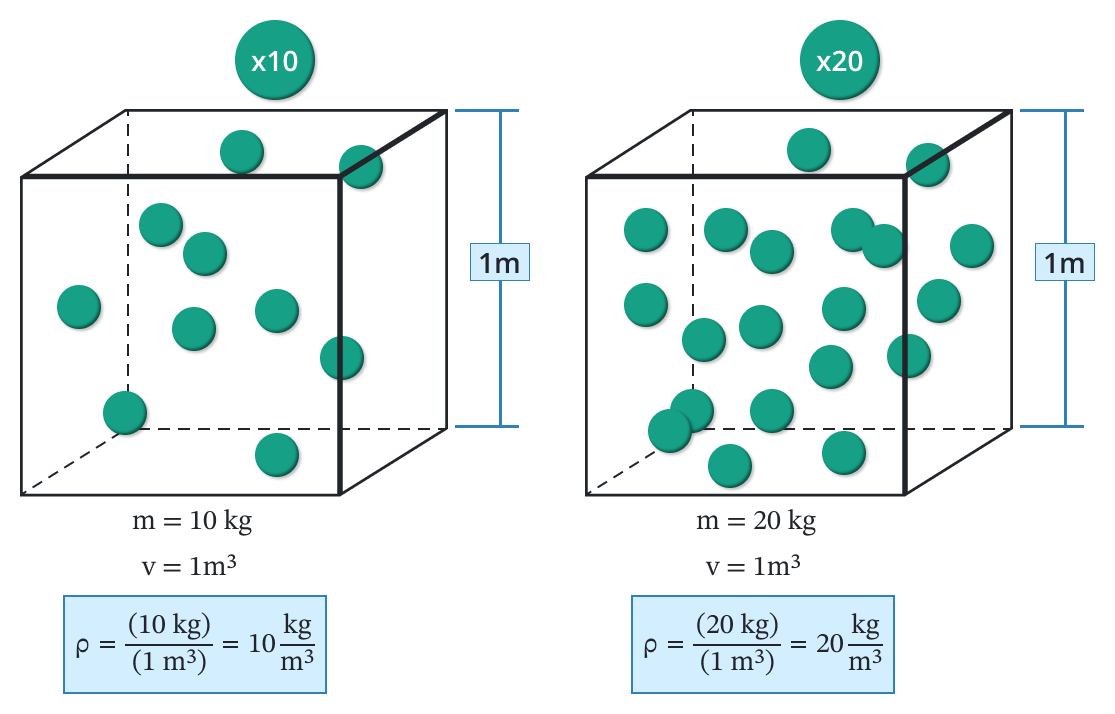To calculate result you have to disable your ad blocker first.
Density Calculator
Enter mass and volume of fluid to calculate the density using density calculator.
Density Calculator
Density Calculator, also known as the "d=mv calculator," is an efficient tool for determining the density, mass, and volume of various substances. It simplifies calculations for solids, liquids, and gasses with its interactive interface and reliable results.
How to use a density calculator?
To calculate density, mass, or volume, follow these steps:
- Select the desired calculation: Choose the quantity you want to calculate from the dropdown menu (Density, Mass, or Volume).
- Enter the remaining values: Input the required values for the remaining two quantities in their respective fields.
- Perform the calculation: Click on “calculate” to find the desired quantity.
What is density?
Density is a measure of mass per unit of volume, and it's an essential property of materials used in various fields such as physics, chemistry, engineering, and geology. The standard unit of density is kilograms per cubic meter (kg/m³).

Density Formula:
The Density Calculator uses the standard formula for calculating density:
Density (ρ) = Mass (m) / Volume (V)
By rearranging the formula, we can also calculate mass and volume:
Mass (m) = Density (ρ) * Volume (V)
Volume (V) = Mass (m) / Density (ρ)
How to calculate density manually?
To calculate the density without using a calculator, follow these steps:
- Gather the known values: Make sure you have the values of the mass and volume.
- Standard measurements: If necessary, convert the given values to standard units of measurement.
- For density, kilograms per cubic meter (kg/m³).
- For mass, kilograms (kg),
- For volume, cubic meters (m³).
- Ensure that all values are in the same unit system (metric or imperial) to avoid errors in your calculations.
- Apply the formula: Use the formula given above to calculate the desired quantity.
- Calculate: Complete the calculation manually, using the formula and the known values.
Example 1:
Calculate the density of a substance with a mass of 250 g and a volume of 100 cm³.
Given data:
Convert the mass and volume to standard units:
Mass (m) = 250 g = 0.25 kg
Volume (V) = 100 cm³ = 1.0 × 10⁻⁴ m³
Apply the formula:
Density (ρ) = Mass (m) / Volume (V)
= 0.25 kg / 1.0 × 10⁻⁴ m³
= 2500 kg/m³
Example 2:
Calculate the volume of a substance with a mass of 0.4 kg and a density of 2000 kg/m³.
Given data:
Mass = 0.4 kg
Density = 2000 kg/m³
Apply the formula:
Volume (V) = Mass (m) / Density (ρ)
= 0.4 kg / 2000 kg/m³
= 2.0 × 10⁻⁴ m³
Daily-life uses:
From geology to astronomy to fields like baking, density plays an important role.
Buoyancy: The principle of buoyancy, which explains why objects float or sink in a fluid, is directly related to the density of both the object and the fluid. This principle is crucial for designing boats, ships, and submarines, as well as understanding the behavior of objects in the water.
Recycling: The process of recycling involves separating materials based on their density. This enables the efficient recovery and reuse of valuable resources.
Astronomy: Density plays a significant role in the study of celestial bodies, such as planets, stars, and galaxies. The density of a celestial object can provide valuable information about its composition, size, and formation history.

